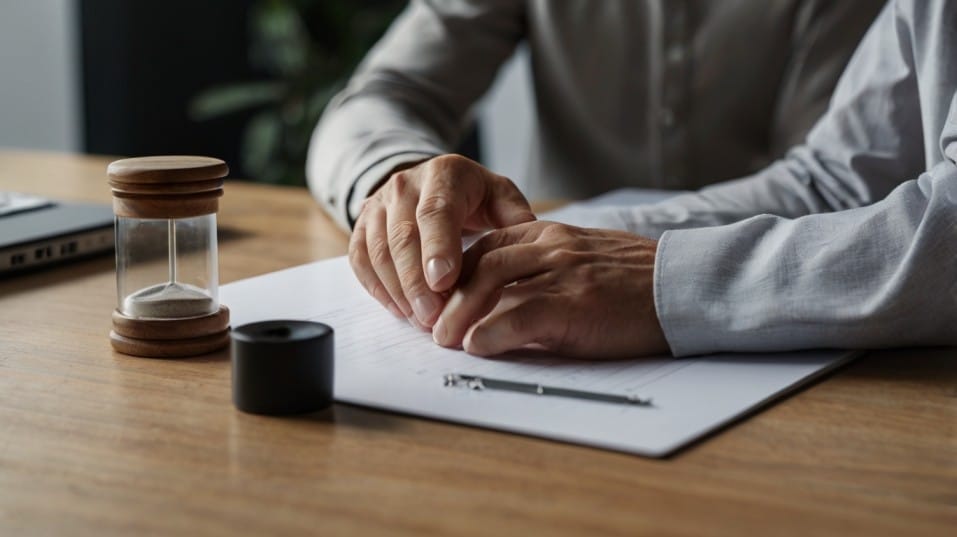How Short Breaks Improve Long-Term Concentration
Learn how short breaks boost concentration, enhance productivity, and reduce stress. Discover effective strategies for better focus.

Ever catch yourself rereading the same sentence or zoning out mid-task? That’s your brain signaling overload.
Pushing through fatigue won’t make you more productive—it drains your mental reserves, leading to slower thinking and more mistakes.
Science proves that brief, intentional breaks restore energy, sharpen focus, and boost creativity. The challenge? Knowing when to pause and what actually works.
Let’s explore the science behind strategic breaks and how to use them to work smarter, not harder.
Why Your Brain Needs Breaks
Your brain isn’t a machine—it’s a dynamic system that requires downtime to function at its best. Without breaks, mental strain builds up, affecting everything from focus to emotional resilience.
Avoiding Mental Overload
Pushing through exhaustion doesn’t mean you’re working harder—it means you’re working against yourself.
The brain can only handle so much input before it slows down, making mistakes more likely and decisions harder. Short breaks give your mind a reset, reducing cognitive strain so you stay sharp and efficient.

Ignoring the signs of mental overload can also lead to long-term consequences. Chronic cognitive strain increases stress levels, affects emotional regulation, and even impacts physical health.
Prolonged stress is linked to higher levels of cortisol, which can contribute to anxiety, sleep disturbances, and burnout.
By integrating structured breaks into your workday, you actively combat these negative effects and keep your mental and physical health in check.
Strengthening Memory & Retention
Ever read something three times and still not remember it? That’s because learning happens in waves.
The brain consolidates information during rest, so stepping away—even for a few minutes—helps lock in what you’ve just learned. It’s why students take breaks while studying and why professionals should, too.
One of the most fascinating findings in neuroscience is the role of the hippocampus in memory formation.
When you take breaks, the brain replays recent experiences, reinforcing important information while discarding the irrelevant.
This process—called memory reconsolidation—helps professionals retain essential details from meetings, training sessions, and reports.
Unlocking Creativity
Breakthrough ideas don’t happen when you’re forcing them—they show up when you’re relaxed. Stepping away from a task allows the subconscious to work in the background, leading to fresh insights and unexpected solutions.
It’s why some of the best ideas strike in the shower, on a walk, or during a casual conversation.
Researchers call this the “incubation effect.” When you stop actively thinking about a problem, your brain continues working on it unconsciously.
Studies show that switching to a different activity—or even engaging in mind-wandering—enhances creative problem-solving and fosters innovative thinking.
Companies like Google and 3M have embraced this by encouraging employees to take breaks, knowing that it leads to groundbreaking ideas.
Lowering Stress & Anxiety
The stress hormone cortisol builds up when you’re under constant pressure, making it harder to focus.
Brief, intentional breaks—especially those involving movement or mindfulness—help regulate stress levels, keeping you clear-headed instead of overwhelmed.
Chronic stress doesn’t just affect mental clarity—it can also lead to decision fatigue. When the brain is constantly engaged, it struggles to make sound judgments, leading to impulsive choices and poor problem-solving. By incorporating stress-reducing breaks, such as deep breathing or nature exposure, you can improve emotional resilience and maintain better decision-making skills throughout the day.
The Best Ways to Take a Break
Not all breaks are equally effective. The key is to choose activities that help reset your mind and restore focus, rather than just scrolling through your phone or zoning out.
Reset with Deep Breathing
A few slow breaths can do more than you think. Deep breathing activates the parasympathetic nervous system, counteracting stress and sharpening focus. Try inhaling for four seconds, holding for four, and exhaling for four. It’s a quick reset that works anytime, anywhere.
For deeper relaxation, explore box breathing or alternate nostril breathing—both proven techniques used by athletes, military personnel, and mindfulness practitioners to enhance concentration and reduce stress.
Move Your Body, Wake Up Your Mind
Sitting for hours at a time reduces blood flow, making you sluggish. Standing up, stretching, or taking a quick walk boosts circulation, delivering oxygen to the brain and helping you feel more awake. Even small movements—rolling your shoulders, shaking out your hands—can make a difference.
Physical activity also stimulates the release of endorphins, natural mood boosters that help counteract stress and mental fatigue. Consider incorporating micro-workouts—like desk yoga or a quick set of bodyweight exercises—to keep both body and mind engaged.
Change Your Scenery
Staring at the same screen all day? No wonder your mind feels stuck. A simple shift—walking to another room, stepping outside, or even gazing out a window—gives your brain a fresh perspective. Exposure to nature, even briefly, has been shown to improve concentration and mood.
Research supports the idea that “green breaks”—spending time in nature, or even looking at images of natural landscapes—can significantly improve cognitive function. If you can’t step outside, consider adding plants to your workspace or using nature-themed visuals on your screen to simulate these benefits.
Hydrate & Refuel
Your brain needs fuel to function, and dehydration or low blood sugar can tank your focus. Drinking water, eating a handful of nuts, or grabbing a piece of fruit can provide the quick boost you need to keep going strong.
Beyond hydration, specific nutrients enhance cognitive performance. Omega-3 fatty acids (found in walnuts and fish), flavonoids (found in dark chocolate and berries), and antioxidants (abundant in leafy greens) all support mental clarity and sustained energy levels.
Engage in Light Social Interaction
A brief chat with a colleague, a quick joke, or even a text exchange with a friend can break up mental monotony. Social interaction releases dopamine, which enhances mood and motivation. Just keep it light—venting about work stress isn’t exactly a brain boost.
Positive social connections at work have also been linked to higher job satisfaction and resilience. Engaging in uplifting conversations can help reinforce a sense of belonging, which contributes to long-term well-being and productivity.
When to Take a Break
Timing matters just as much as the break itself. Taking a break at the right moment can boost efficiency, while pushing through fatigue can backfire, leading to diminishing returns.
Follow Your Brain’s Natural Rhythm
The brain operates in cycles of peak focus followed by dips in energy. Working for about 90 minutes before taking a short break aligns with these ultradian rhythms, keeping productivity high and burnout low.
Try the Pomodoro Method
Work intensely for 25 minutes, then take a five-minute break. After four rounds, take a longer 15-30 minute break. This technique helps maintain momentum while ensuring the brain gets the recovery time it needs.
If the Pomodoro technique feels too rigid, experiment with variations—such as the Flowtime Technique, which allows more flexibility by letting you work until you naturally need a break.
Step Away When You’re Stuck
Feeling frustrated? Struggling with a problem? That’s a sign your brain needs a reset. Walking away, even briefly, can restore clarity and make solutions more obvious when you return.
Final Thoughts
Short breaks aren’t a luxury—they’re a performance tool. Skipping them doesn’t mean you’re being productive; it means you’re working harder for diminishing results. Start today. Experiment with different types of breaks and see how they impact your focus, creativity, and overall efficiency. Your brain will thank you.




